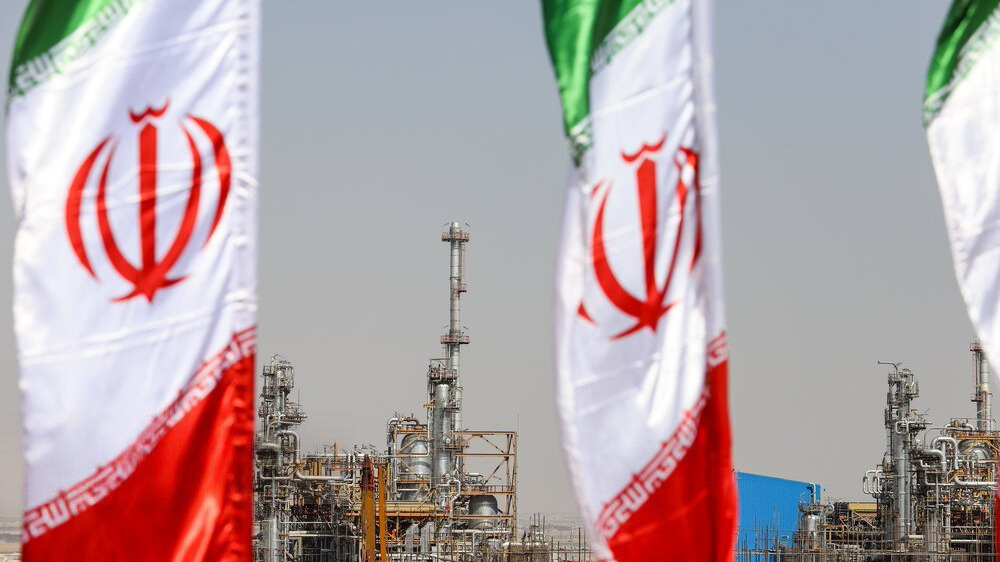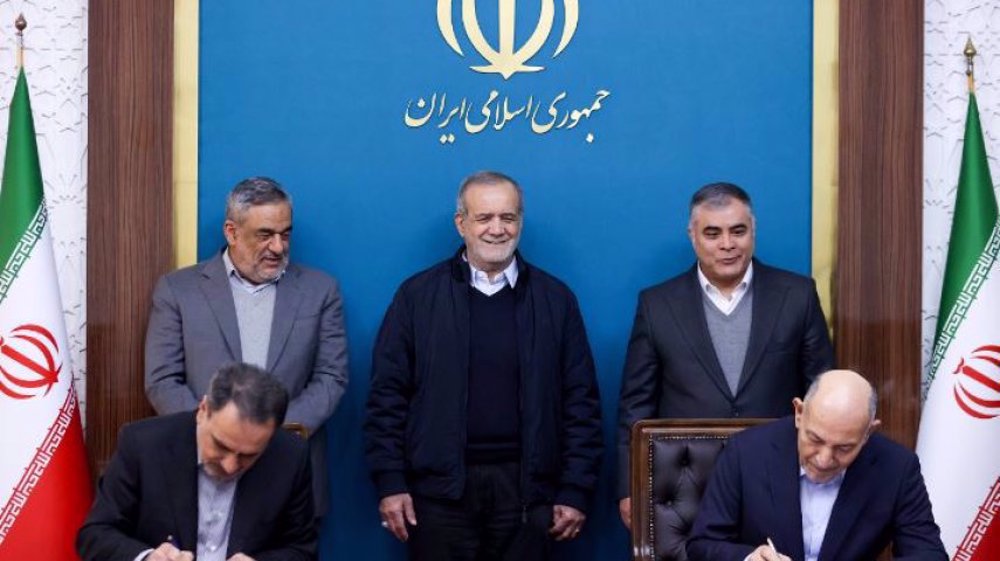Iran currently exporting 300,000 bpd of oil to Europe: Zangeneh
Iran's Oil Minister Bijan Zangeneh says the country is currently exporting 300,000 barrels per day of crude oil to European countries and the figure will rise when new contracts are signed with European oil majors.
According to Iranian Oil Ministry's official SHANA news agency, Zangeneh noted that the National Iranian Oil Company (NIOC) will soon finalize a contract with the French Total to sell 160,000 barrels per day of crude oil to the company.
He added that the Total contract will be officially singed on February 16.
In addition to buying oil from Iran, “Total has indicated its readiness to take part in the development of South Azadegan oil field and Iran LNG project,” he added.
The Iranian oil minister said necessary information with regard to the two projects will be provided to the French company, after which it will offer its proposals to the Iranian side.

“This means that we have not reached an agreement to put them in charge of the project, but the agreement is for Total to carry out necessary studies on these projects,” Zangeneh said.
Elsewhere in his interview, Zangeneh said officials of Italy’s Eni have also indicated their willingness to work in the Iranian oil sector.
The Iranian oil minister stated that no contract was signed between the two sides during a recent visit to Rome by Iran's President Hassan Rouhani, but “the company’s officials are to visit Tehran soon in order to sign a contract for purchasing Iran's crude oil.”
Zangeneh added that Eni has also indicated its interest in taking part in development of one of the Iranian oil fields.
“In addition, Italy’s Saras refinery has demanded to buy between 60,000 to 70,000 barrels of Iran's crude oil per day,” he said.
Earlier on Saturday, Zangeneh was quoted by SHANA as saying that Iran is putting finishing touches to the new format of its oil contracts, known as the Iran Petroleum Contracts, to attract more international investment in the country’s oil sector.
“So far, no contract has been signed and even the text of this model of contracts has not been readied yet,” Zangeneh said, adding, “The drafting of the contracts is under way and we will negotiate with [foreign] companies after finalization.”
IPC is replacing buyback deals. Under a buyback deal, the host government agrees to pay the contractor an agreed price for all volumes of hydrocarbons the contractor produces. However, under the IPC, the National Iranian Oil Company will set up joint ventures for crude oil and gas production with international companies, which will be paid with a share of the output.
More than 100 energy companies, including Britain’s BP, France’s Total, Italy’s Eni and Spain’s Repsol attended a conference in Tehran last November to hear about the IPC.
Under the IPC, different stages of exploration, development and production will be offered to contractors as an integrated package, with the emphasis laid on enhanced and improved recovery.
Architects of the new contract say foreign companies can no longer dash out of their contractual obligations if sanctions are ever re-imposed on Iran. But critics cite numerous shortcomings which seriously plague the new formula.
Israeli keeps killing more Palestinian civilians in Gaza amid relentless ceasefire violations
Aliyev: Azerbaijani territory will not be used for threats against Iran
Turkey arrests two on charges of spying for Israeli regime
Iran FM declares ‘good start’ as US–Iran talks conclude in Muscat
Iran strongly condemns 'terrorist' mosque blast in Islamabad
Iran enters talks backed by national power, popular support: MP
France, UK involved in assassination of Muammar Gaddafi's son: Reports
Shia mosque explosion in Islamabad kills more than 30, injures over 160










 This makes it easy to access the Press TV website
This makes it easy to access the Press TV website